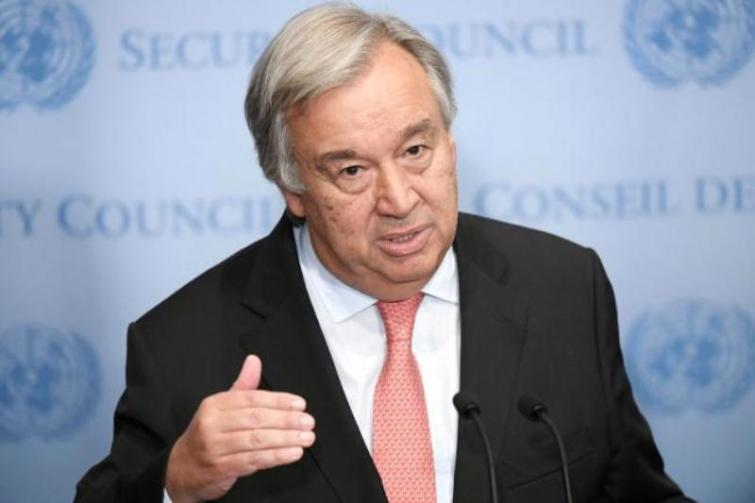 Coal
Coal UN Chief urges India to increase reliance on renewable energy, phase out coal use
New Delhi/IBNS: United Nations Secretary-General António Guterres has urged the Indian government to diminish coal use and rely on renewable energy, pointing out the downsides of coal mining and burning, including environmental pollution, global warming, health care costs, media reports said.
Delivering the Darbari Seth Memorial Lecture speech through a video link at New Delhi-based environment think tank The Energy and Resources Institute (TERI), Guterres said India has the potential to become can be the business hub to achieve Sustainable Development Goal 7.
The UNI chief said India can emerge as a true global leader in the fight against climate change, if it intensified its transmission from fossil fuel to renewable energy, reported media.
India can achieve two of its top priorities—poverty alleviation and universal energy access – by embracing renewable energy, particularly solar energy, he observed.
Guterres pointed out that 50 per cent of coal will turn uncompetitive by 2022, increasing to 85 per cent by 2025, which explains the logic as to why the world’s largest businesses are abandoning coal.
Due to its damaging impact on the environment and human lives, India must phase out financially volatile and costly fossil fuels, he asserted, adding that investing in fossil fuels meant bad economics and human disaster.
Investment in renewable energy, clean transport and energy efficiency during the recovery from the pandemic could ensure electricity access to 270 million people across the world, a third of the people who currently lack it, he said.
He noted the significant strides India has made in universal access to clean energy, yet 64 million people are still without electricity and added that investment in renewable energy can cover a large number of these people.
Guterres said investing in renewable energy creates three times more jobs than fossil fuels, and in the post-Covid period, similar investments can help create 9 million jobs annually over the next three years.
India has the fourth-largest coal reserve in the world and it is the second-largest importer, consumer and producer of coal after China.
Indian government plans to significantly cut down its thermal coal imports and increase local coal production, particularly in central India, where the majority of the coal blocks are located, M Nagaraju, a joint secretary in Coal Ministry, said Wednesday.
India can substitute at least 110 -120 million tonnes of coal import with its available resources in the course of the next few years to save foreign exchange and increase employment in coal belts, he had added while speaking in a seminar.
India in June launched an auction of 41 coal blocks with an estimated output of nearly one-third of total national output.
According to RK Singh, Minister of State New and Renewable Energy, the installed capacity of renewable energy generation in the country has grown 72 per cent from 80 gigawatt (GW) to 138.9 GW during the past six years as of March 2020, however, coal will continue to play an important role in the energy mix of the country for the next 30 years. officials have said.
Support Our Journalism
We cannot do without you.. your contribution supports unbiased journalism
IBNS is not driven by any ism- not wokeism, not racism, not skewed secularism, not hyper right-wing or left liberal ideals, nor by any hardline religious beliefs or hyper nationalism. We want to serve you good old objective news, as they are. We do not judge or preach. We let people decide for themselves. We only try to present factual and well-sourced news.







